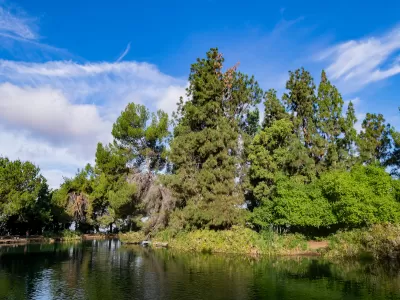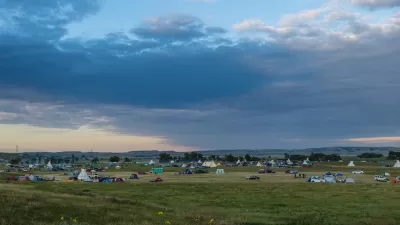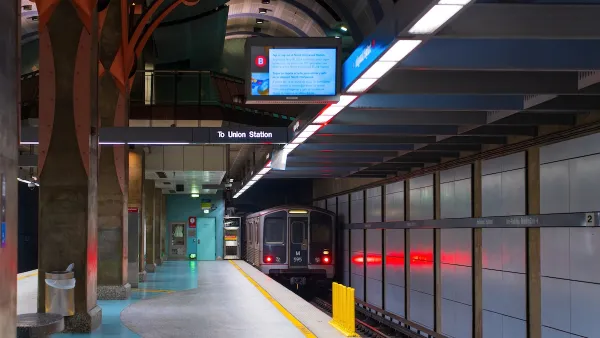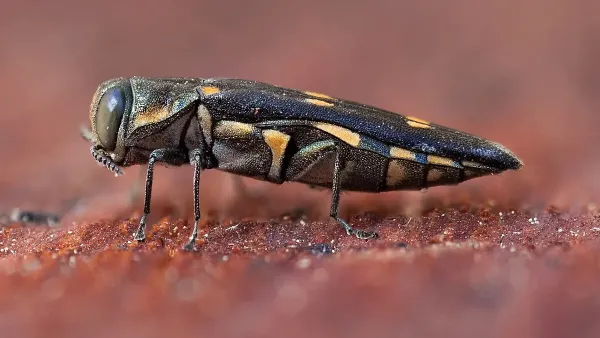Ary Amaya, a UCLA graduate student, leads an Indigenous-led reforestation effort in Los Angeles, integrating cultural practices and ecological restoration across 27 acres to promote Indigenous sovereignty and sustainable land management.

Ary Amaya, a graduate student at UCLA, is at the forefront of an Indigenous-led reforestation effort in Los Angeles. Standing amidst a landscape she has helped restore, Amaya explains the cultural and ecological importance of the native trees and plants that make up a "food forest." As reported by Madeline Adamo, this project is part of the Chief Ya’anna Regenerative Learning Village, a 12-acre area dedicated to the Gabrielino-Shoshone Nation of Southern California.
Central to this reforestation initiative is the Anawakalmekak International University Preparatory of North America, a community-based charter school that serves Indigenous students from across the Americas. Amaya, who has been an educator at the school since 2021, integrates Indigenous knowledge systems into the scientific curriculum, drawing from her own heritage and upbringing in Nayarit, Mexico. Her dual roles at UCLA and Anawakalmekak allow her to bridge academic research and community engagement.
Amaya's efforts extend to Ernest E. Debs Regional Park, bringing the total reforested area to 27 acres. She mentors a group of high school students, the "Ketsal Youth Research Scientists," who conduct ground observations and remote sensing to study the ecological impact of their work. This hands-on approach not only educates the youth but also reaffirms the importance of Indigenous sovereignty and self-determination in ecological restoration.
Supported by her graduate advisor, Elsa Ordway, and collaborating with Gabrielle Crowe and Minnie Ferguson, Amaya's work underscores the value of integrating Indigenous perspectives into environmental science. This initiative aligns with UCLA's broader commitment to inclusive excellence and community engagement, aiming to elevate Indigenous knowledge and voices in both academic and local contexts.
FULL STORY: Ary Amaya is 27 acres into an Indigenous-led reforestation of L.A. She’s far from done

Planetizen Federal Action Tracker
A weekly monitor of how Trump’s orders and actions are impacting planners and planning in America.

Maui's Vacation Rental Debate Turns Ugly
Verbal attacks, misinformation campaigns and fistfights plague a high-stakes debate to convert thousands of vacation rentals into long-term housing.

San Francisco Suspends Traffic Calming Amidst Record Deaths
Citing “a challenging fiscal landscape,” the city will cease the program on the heels of 42 traffic deaths, including 24 pedestrians.

Amtrak Rolls Out New Orleans to Alabama “Mardi Gras” Train
The new service will operate morning and evening departures between Mobile and New Orleans.

The Subversive Car-Free Guide to Trump's Great American Road Trip
Car-free ways to access Chicagoland’s best tourist attractions.

San Antonio and Austin are Fusing Into one Massive Megaregion
The region spanning the two central Texas cities is growing fast, posing challenges for local infrastructure and water supplies.
Urban Design for Planners 1: Software Tools
This six-course series explores essential urban design concepts using open source software and equips planners with the tools they need to participate fully in the urban design process.
Planning for Universal Design
Learn the tools for implementing Universal Design in planning regulations.
Heyer Gruel & Associates PA
JM Goldson LLC
Custer County Colorado
City of Camden Redevelopment Agency
City of Astoria
Transportation Research & Education Center (TREC) at Portland State University
Jefferson Parish Government
Camden Redevelopment Agency
City of Claremont





























